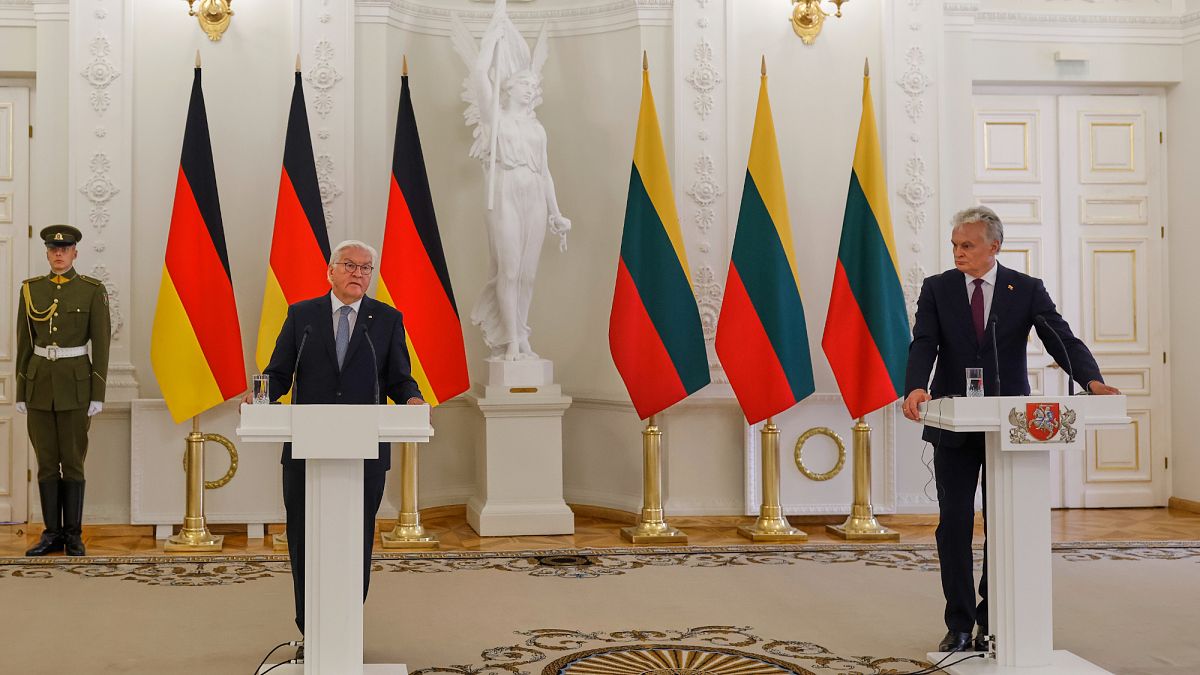

In a series of movements that highlight shifting global dynamics, diplomatic authorities across various regions are proactively engaging in new collaborations and discussions to foster stronger international relationships. These developments, involving countries in Europe, Asia, and the Americas, are aimed at enhancing mutual security and economic stability amidst a backdrop of past tensions and emerging opportunities.
German President Frank-Walter Steinmeier recently visited Vilnius, Lithuania, where he underscored a commitment to mutual security and collaboration between Germany and Lithuania. This visit reinforces a shared vision grounded in common values and a strategic partnership, emphasizing that Lithuania’s security concerns are also Germany’s. Such assurances are part of Germany’s broader initiative to strengthen unity and support among European nations, particularly against external pressures.
Meanwhile, in the Americas, a significant event was marked by the opening of the BRICS summit in Rio de Janeiro. This gathering was intended to facilitate discussions among key leaders on global political challenges and economic cooperation. However, the absence of China’s Xi Jinping and Russia’s Vladimir Putin raised questions about the cohesion within this coalition. The summit continues to serve as an essential platform for member countries to address shared challenges and explore cooperative solutions, despite these notable absences.
In Eastern Europe, European Union leaders have reiterated their support for Moldova’s aspirations to join the EU. This backing is reflected in substantial investments aimed at bolstering Moldova’s economy and lessening its susceptibility to external pressures, notably from Russia. The emphasis is on fostering economic resilience and greater integration within the European community, aligning with broader EU goals of stability and prosperity in the region.
Across the globe, an important development in trade relations has occurred between Beijing and Washington. Both countries have agreed to lift export restrictions on key industrial products, following a pact made last month in London. This action represents a step toward easing global trade tensions, as both sides take constructive measures to stabilize and enhance economic cooperation. This agreement facilitates smoother trade interactions and underscores a shared interest in economic growth and industry development.
In a notable step in the Middle East, Britain is seeking to re-establish diplomatic ties with Syria. This announcement was made by Foreign Secretary David Lammy during his visit to Damascus, marking the first British ministerial visit in 14 years. The renewed relationship is aimed at supporting Syria’s new government to build a stable and prosperous future. This move signifies hope for the Syrian people and a strategic interest for the UK in contributing to regional stability and economic progress.
These diplomatic initiatives and strategic dialogues, stretching across continents, exemplify a global environment focused on fostering peaceful cooperation and economic advancement. Each initiative, whether in the realm of security, economic partnerships, or trade, is driven by a common goal of ensuring mutual benefit and a more stable international landscape. Through such efforts, countries are navigating the present challenges with a vision of creating sustainable foundations for future prosperity.
Source: {link}
